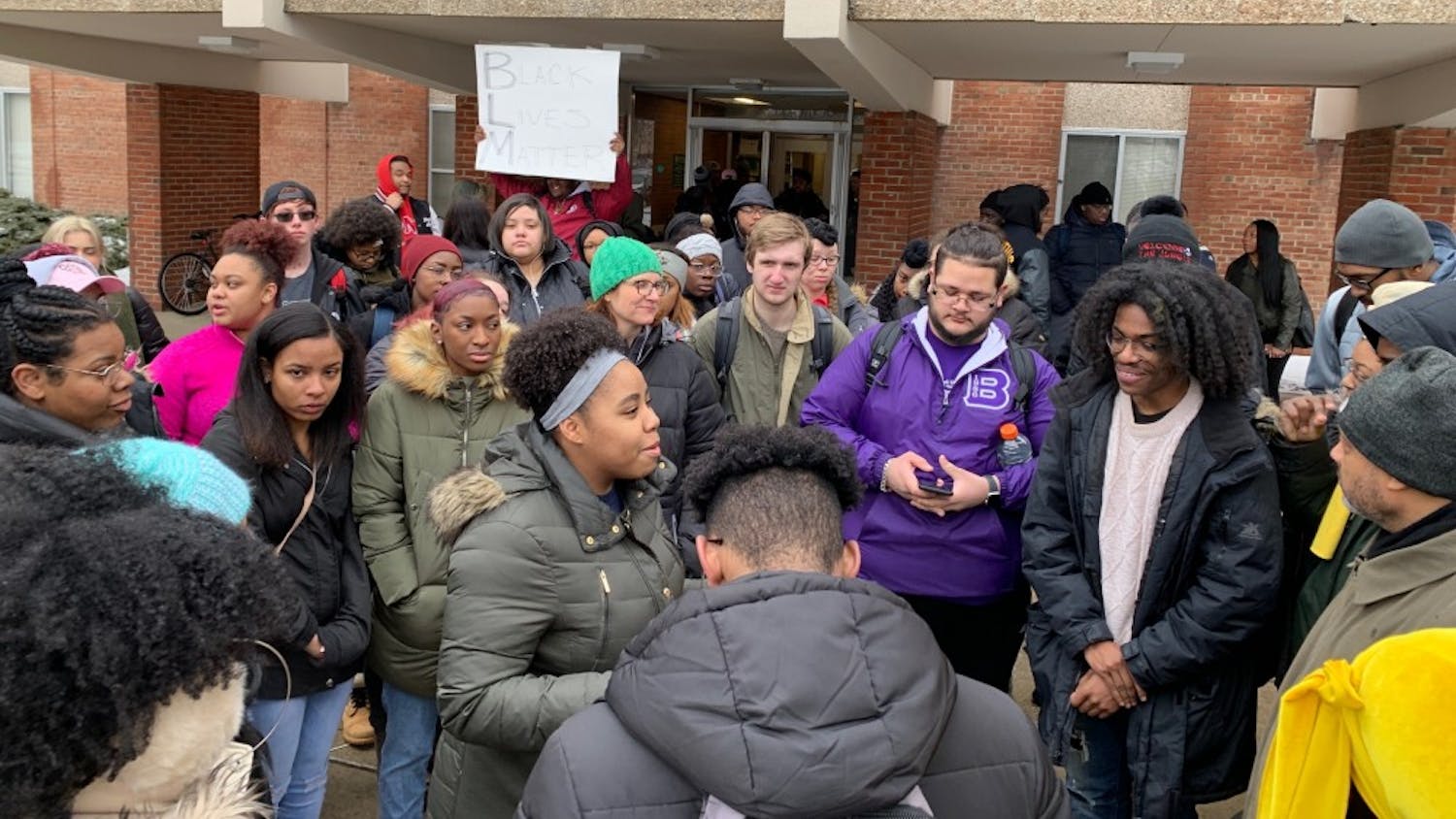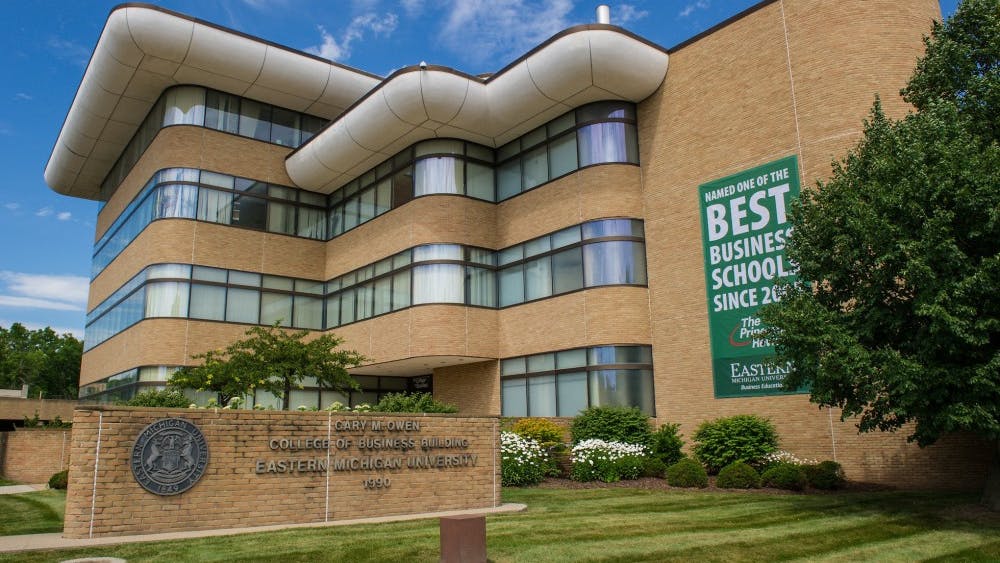- Ethan Smith and Hajer Abuzir won the 2019-20 student body election for president and vice president. They're preparing to take on the positions and putting plans together to tackle key issues they focused on in the campaign.
- Smith and Abuzir echoed their previous statement of increasing food security on campus and finding new ways to increase sustainability practices.
- Smith explained what he'd be willing to sacrifice for privatizing housing and what the university needs to do differently this time around.
EASTERN MICHIGAN UNIVERSITY (EMU) - President-elect Ethan Smith and Vice President-elect Hajer Abuzir are ready to get to work after a decisive election win last month.
“We want to make sure students basic needs are met,” Smith said. “That means they’re food secure, they have access to a healthy diet, they have stable and affordable housing.”
Privatization of Housing
EMU signed a 35-year contract with LAZ Parking in 2018 that has led to numerous complaints from student and staff, including a forum hosted by Student Government, that addressed issues they’ve had with parking services.
“When we enter into these long contracts, there’s a possibility for many things to go wrong,” Smith said. “Students weren't consulted, the community wasn't consulted. As a result, we got a deal that is not as good as it could possibly be.”
Smith finds the process of privatizing very disturbing but is open to discussing a deal as long as the deal follows four core commands.
“Getting a deal where the costs don’t go up more than they would have otherwise is the top priority,” Smith said.
Food Security
Food insecurity is an important issue that Smith and Abuzir plan to address head-on. Smith said, “There is an embarrassment where something so fundamental as food is so scarce on a college campus where students are expected to pay thousands of dollars in tuition.”
Abuzir spoke at great lengths about finding new ways to ensure that EMU students are food-secure. They're pushing for more vegan, vegetarian and halal options. Abuzir said, “If that means growing it on campus ourselves, then that’s what we’re going to do.”
Abuzir continued, “If you look outside right now, you’ll see rocks everywhere. Rocks every corner. Why can’t we replace these with sustainable options? Why can’t we replace these with food options that can be easily grown on campus? If we can’t grow outside in the winter, why can’t we grow things indoors?”
Student Government is already in coordination with the Giving Garden and the Food Recovery Network. Giving Garden runs a community organic garden off-campus, while the Food Recovery Network focuses on sustainability and food security issues.
Homelessness
Homelessness is a hidden issue on EMU’s campus that the Smith-Abuzir team plan to address. Recently, the two spoke with a student that was homeless in 2016.
Abuzir said, “None of [his basic needs] were being met ... He said that a huge issue he had on this campus was not being able to connect with people on campus. He would go to class. He would go to the gym. He would just go to his car and that would be the end of his day.”
This student is only one example of a homeless student. There are other students on campus today that harbor the same secret.
The closest thing on campus that we have to combat homelessness is Mentorship Access Guidance in College (MAGIC). “That focuses very narrowly on students that are coming out of the foster care system, so I think that is an opportunity for more.” Whether that opportunity involves expanding the MAGIC program or developing an additional program remains to be seen.
Diversity and Inclusion
Smith echoed Abuzir’s response, adding that although these acts of hate are most likely going to continue, the university should have processes in place to help prevent these acts.
Smith and Abuzir plan to start the campus-wide surveys on food security over the summer and prepare their staff for the fall.










